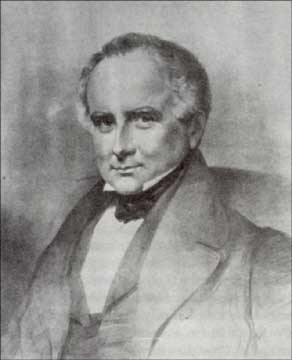Thomas Chandler Haliburton citáty a výroky
Thomas Chandler Haliburton: Citáty anglicky
“We reckon hours and minutes to be dollars and cents.”
The Clockmaker (1836); comparable to "Remember that time is money" in "Advice to a Young Tradesman" (1748) by Benjamin Franklin
“Nicknames stick to people, and the most ridiculous are the most adhesive.”
Wise-saws : or, Sam Slick in Search of a Wife (1856), p. 179.
“Always judge your fellow passengers to be the opposite of what they strive to appear to be.”
Maxims of an Old Stager.
Kontext: Always judge your fellow passengers to be the opposite of what they strive to appear to be.
For instance, a military man is not quarrelsome, for no man doubts his courage; but a snob is.
A clergyman is not over strait- laced, for his piety is not questioned; but a cheat is.
A lawyer is not apt to be argumentative; but an actor is.
A woman that is all smiles and graces is a vixen at heart : snakes fascinate.
A stranger that is obsequious and over-civil without apparent cause is treacherous: cats that purr are apt to bite and scratch.
Pride is one thing, assumption is another; the latter must always get the cold shoulder, for whoever shews it is no gentleman: men never affect to be what they are, but what they are not. The only man who really is what he appears to be is — a gentleman.
The Old Judge, Or Life in a Colony (1849), Ch. XV.
The Season-Ticket, An Evening at Cork 1860 p. 1-2.
Sam Slick in England (1835), Ch. XXIV; “Sam Slick” first appeared in a weekly paper of Nova Scotia, 1835. Comparable to: "Those families, you know, are our upper-crust,—not upper ten thousand", Cooper: The Ways of the Hour, chap. vi. (1850); "At present there is no distinction among the upper ten thousand of the city" N. P. Willis, Necessity for a Promenade Drive.
Sam Slick's wise saws and modern instances: or, What he said, did, or invented, Volumen 1 https://archive.org/details/samslickswisesaw00haliuoft (1853), p. 185, Hurst and Blackett.
“Punctuality […] is the soul of business.”
Sam Slick's Wise Saws and Modern Instances, Hurst and Blackett, 1859, p. 31 http://books.google.it/books?hl=it&id=d9EsAAAAYAAJ&pg=PA31.
Sam Slick, in Sam Slick's wise saws and modern instances: or, What he said, did, or invented, Volumen 1 https://archive.org/details/samslickswisesaw00haliuoft (1853), p. 185, Hurst and Blackett.
